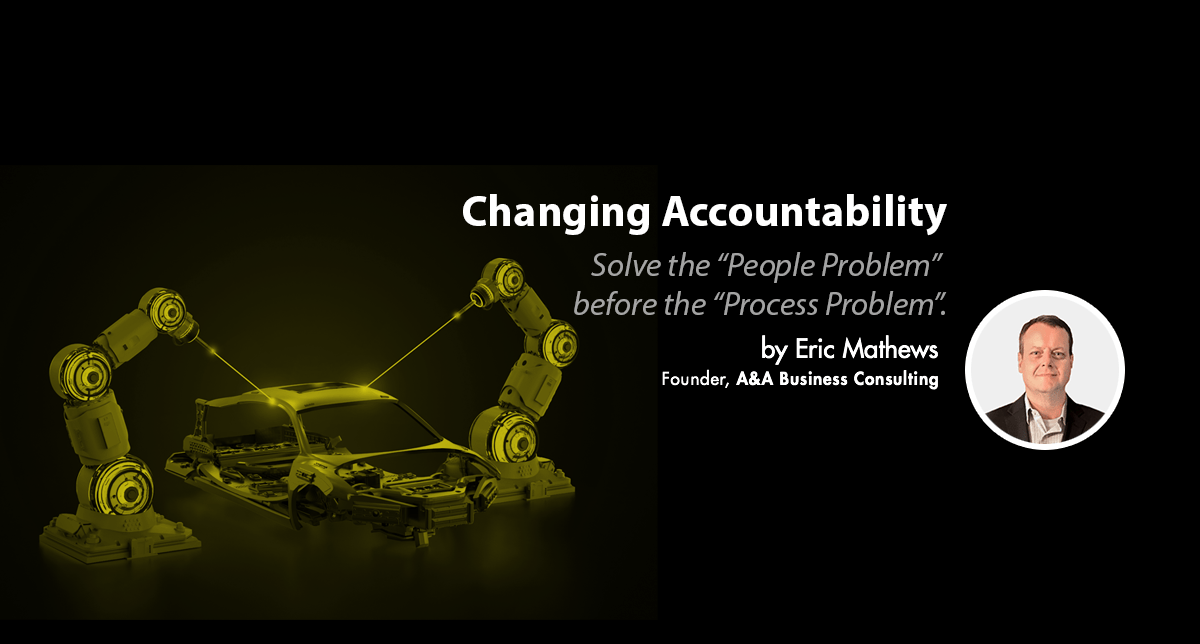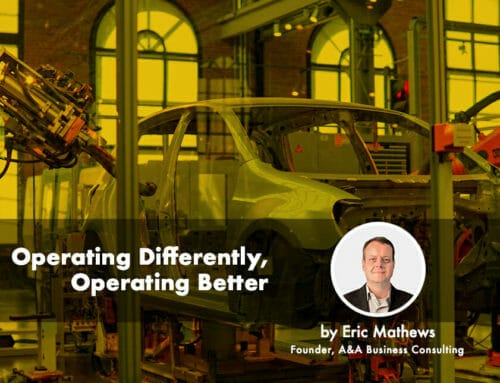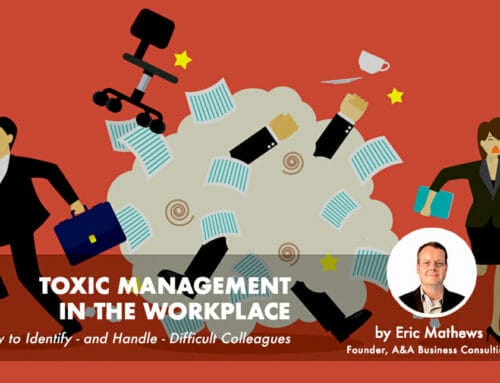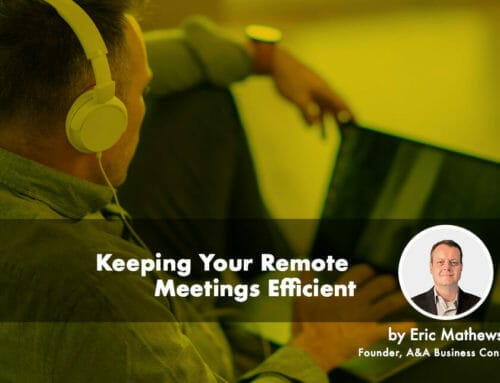Solve the “People Problem” before the “Process Problem”
There is a common phrase being thrown around in leadership conversations these days. Maybe you’ve heard it?
“People leave managers, not companies.”
Though this isn’t always the case, it does place an uncomfortable emphasis on the role of leadership. It forces every circumspect manager or executive to ask the question, “Am I ever the problem?”
Perhaps you’ve wrestled with this question. Perhaps it keeps you up at night. Perhaps it’s why you stand at a window, looking wistfully out into the distance… Ok, so maybe you don’t do that last one. But if you’ve ever thought about your role in your company’s changing environment, good news! You’re right on track.
In Part 1 of this blog series, I introduced three changes I’ve observed in the automotive manufacturing industry. In Part 2, I offered a different scheduling system to empower you to adapt to your changing workforce. In this final post of the series, I’m writing about something often overlooked as companies deal with change: personal accountability.
Accountability and Employee Retention
A recent survey asked the question, “What causes millennials to lose faith in their company?” One of the top answers: poor leadership. With the changing workforce comes the changing expectations for leadership.
Are leaders concerned about workers? Do they see beyond the walls of the business to recognize how it impacts the community and environment? Is the management of the company invested in building a better future? These are just a few of the questions running through the minds of your workers.
Employees want to know that their employers hold themselves accountable to the bigger picture and are open to ongoing dialogue. Especially with the up-and-coming generations of workers, there is the hope for “constant ongoing communication” with management and leadership; they want more than a dry impersonal relationship. It may require more time and energy on your part, but it could be a critical step in retaining your current workforce, saving your business money. (I’ll write more about how employee retention affects a company’s bottom line in my next blog post.)
The relationship between accountability and retention doesn’t fall only along generational lines—it also affects minority groups within a workforce. A recent study among women automotive engineers indicated that only 18% of them trust their organization’s leadership (37% of men trusted leadership). Think about that—less than 1 in 5 women trust management. Talk about a lack of accountability!
Are there smaller groups of employees within your workforce being overlooked? If so, how long do you think they’ll stick around?
Accountability and Productivity
But accountability doesn’t focus solely on management—it’s necessary to hold the entire workforce accountable. In my experience, companies with lagging productivity often spend countless hours trying to reinvent the process, dissecting the system while missing the bigger picture. The process may not be the issue…it may be the people.
Have you ever felt like you’re spinning your wheels working down the biggest problems on your company’s Pareto chart? You resolve the biggest issues, yet you don’t see the results you hope for. Delivery schedules are missed, time is wasted, workforce is underperforming. In almost every case, this is because managers need to solve the “People Problem” before the “Process Problem.” In auto manufacturing, we can’t afford to treat people like cogs in a machine, and managers need an adaptive view of accountability to address these issues.
Let me give you an example. Let’s say a screwdriver breaks on the line. On the record, this only costs the company the one hour it takes to fix the screwdriver. But in reality, it sets the worker back for the rest of the day. The entire shift is compromised, not by the process, but in how it affects the people involved. And without accountability, this effect would go unnoticed. It takes a competent leader to see where the breakdown happens, not just with the inorganic system, but with all the moving players within that system.
So if a team isn’t meeting their delivery schedule, consider the power of personal accountability.
But if accountability is so great, why don’t we see more accountability in manufacturing?
First, there’s the fear of conflict.
Have you ever been put in a place of leadership above your peers? I have. And it can be awkward, especially if you came up through the ranks together. You can hear their criticism in your head: “Who does he think he is—calling me out like that?” or “What gives her the right to review my work?” And yet, that’s exactly what leaders must do. So whether I’m describing your current experience or the experiences of those managers beneath you, productive conflict is something that must be accepted as necessary for growth.
In his book, The Five Dysfunctions of a Team: A Leadership Fable, Patrick Lencioni writes, “Unfortunately, conflict is considered taboo in many situations, especially at work. And the higher you go up the management chain, the more you find people spending inordinate amounts of time and energy trying to avoid the kind of passionate debates that are essential to any great team.”
Healthy conflict can be productive—it clears communication channels, it solves both process and people problems, and it brainstorms new and creative solutions. Sure, it can be tense, at times. But that tension can resolve into eloquent answers. As those solutions are put into effect, there is a higher sense of personal satisfaction and worth. Deep down, everyone wants to improve, and everyone wants to know they’re doing a good job. These goals can only be reached with the help of occasional healthy conflict.
But conflict in theory and conflict in practice can feel like two very different things. Fear of conflict can also arise when someone tries to instigate a conversation or hold someone accountable…and the whole thing backfires. In the end, the entire situation seems worse off than before. It would make sense for a manager to feel a little gun-shy after that experience. Lencioni also notes, “Some people are hard to hold accountable because they are so helpful. Others because they get defensive. Others because they are intimidating. I don’t think it’s easy to hold anyone accountable.”
So what to do then? Avoid accountability for fear of conflict? I don’t think so. Instead, we need to look at the second reason auto manufacturing companies may avoid accountability.
There’s a lack of managerial coaching and skills development.
In my years of experience, I’ve worked with countless leaders, managers, and executives who genuinely want to increase the overall level of accountability within their organization. They see that accountability is an expectation of the incoming generation of workers and recognize the connection between accountability and productivity. And yet, this goal seems out of reach.
What they need are the tools to foster a practice of accountability, involving honest communication, productive conflict, and big-picture thinking. There are deliberate skills that can be learned which empower a leader to create this environment of personal accountability.
How does your company create an environment of accountability? Are there areas that lack this quality? If so, I would love to hear from you.





